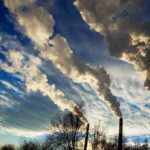Moves to Make a Fracking and Drilling Moratorium on the Delaware River Basin Permanent
Reality Check | WURD radio Special to ecoWURD
Delaware River Keepers Leader Maya Von Rossum talked with Charles Ellison, host of WURD’s Reality Check, about the state of the Delaware River Basin and recent announcement by Gov. Phil Murphy (D-NJ), who is Chair of the Delaware River Basin Commission (DRBC), to vote for a permanent ban on fracking in the Delaware River watershed, including a recommended ban on wastewater storage, processing and discharges in the Basin. That ban would also include water exports from the watershed to fuel fracking elsewhere.
“This commission includes decision makers who are not only the Governors of the four Delaware River Basin states, including Delaware, New Jersey, New York and Pennsylvania, but also a representative from the U.S. Army Corps of Engineers,” van Rossum explains. “It’s mission is to protect the Basin and all the populations along that Basin who depend on its waterways. Back in 2010, there was an effort to put in place a moratorium against drilling and fracking for shale gas anywhere within the boundaries of our watershed.”
“Wait a second, we need our moratorium to be turned into a permanent ban. So, Gov. Murphy has stepped up and agreed with the communities. This is a very powerful statement, especially because he has a key vote. We hope it will convince other Democratic governors along the watershed to vote the same way. This is pretty solid because he’s resisted those political forces from those interests who support fracking.
Rossum expressed concerns, however, that Pennsylvania Gov. Tom Wolf (D-PA) could hesitate supporting a fracking ban in the Basin because of his known support for the fossil fuel industry. “Pennsylvania could be the hardest hit because they would get the wastewater and the water withdrawals, and the drilling and fracking because, unlike Gov. Andrew Cuomo (D-NY) who has put in a ban statewide against drilling and fracking, Gov. Wolf has been supportive of the industry in other parts of the state outside of the watershed.”



